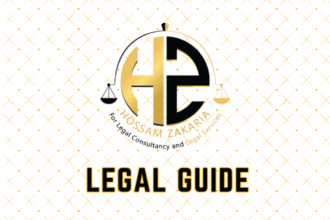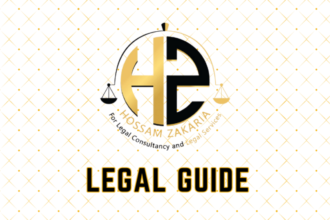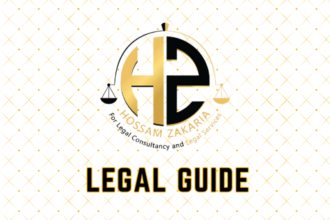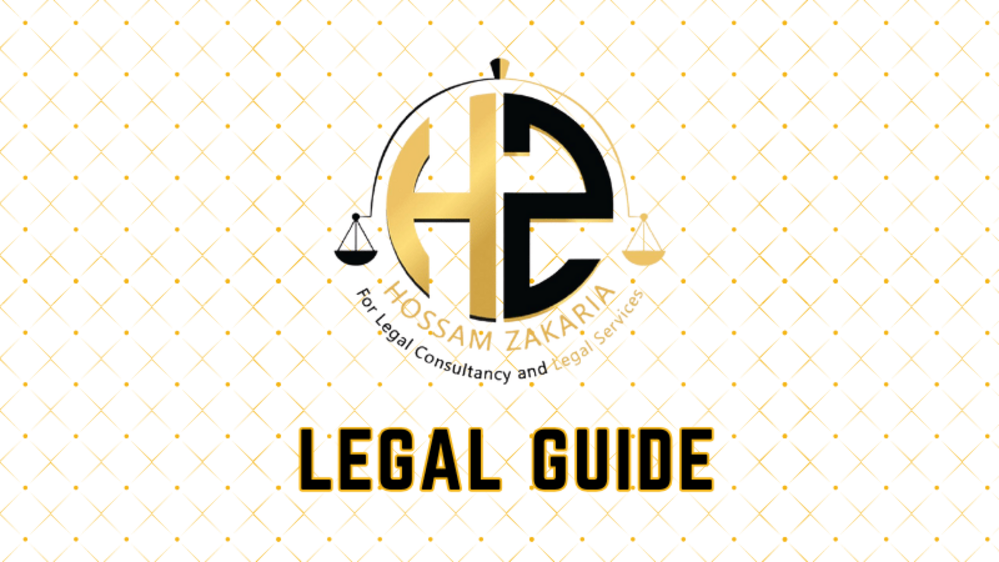Introduction: Ensuring Legal Compliance in Cross-Border Air Accident Reporting
As the UAE economy continues to expand its international footprint, more local businesses are conducting operations in neighboring nations, notably Qatar. The cross-border nature of aviation operations raises significant legal challenges, especially concerning the rigorous procedures for reporting air accidents. Recent developments in both UAE and Qatari aviation law have heightened the importance of compliance for businesses with personnel, assets, or contractual arrangements linked to Qatar. For UAE-based executives, HR managers, and legal practitioners, understanding these procedures is pivotal to safeguarding corporate interests and upholding regulatory standards. This expert analysis provides a comprehensive, step-by-step exploration of the legal procedures, obligations, recent legal updates, and practical strategies required for seamless compliance when reporting air accidents in Qatar, tailored specifically for UAE businesses.
Heightened regulatory scrutiny, the evolution of obligations under new federal decrees in the UAE for 2025, and the harmonization of GCC air safety protocols make this guide not only relevant but essential. Missteps can lead to severe civil, criminal, and reputational consequences, while timely compliance ensures operational resilience and stakeholder confidence.
Table of Contents
- Context and Legal Framework
- UAE and Qatari Aviation Laws Overview
- Legal Obligations for UAE Businesses Reporting Air Accidents in Qatar
- Recent UAE Law 2025 Updates Impacting Cross-Border Reporting
- Comparison of Regulatory Provisions: Old vs New Requirements
- Step-by-Step Reporting Procedures in Qatar
- Practical Insights and Compliance Strategies
- Case Studies and Hypotheticals
- Risks of Non-Compliance
- Conclusion and Best Practices for UAE Businesses
Context and Legal Framework
The Strategic Importance of Legal Compliance in Aviation Accidents
International aviation is governed by a web of multilateral conventions, domestic statutes, and sector-driven regulations. Any air accident—ranging from a minor incident to a major disaster—involving UAE companies or their personnel within Qatari airspace triggers a cascade of legal responsibilities governed by both jurisdictions. The International Civil Aviation Organization (ICAO) and its Annex 13: Aircraft Accident and Incident Investigation, ratified by both Qatar and the UAE, serve as a foundational reference. At the national level, the UAE’s Federal Law No. 20 of 1991 on Civil Aviation (as amended through the Federal Legal Gazette) and the Qatari Law No. (15) of 2002 on Civil Aviation outline the backbone of statutory obligations.
Against this background, businesses must appreciate that while some aspects of the legal landscape are harmonized, divergent procedural requirements and reporting timelines can create traps for the unwary.
UAE and Qatari Aviation Laws Overview
UAE Law: Federal Law No. 20 of 1991 and 2025 Updates
The UAE’s aviation regulatory regime governs both domestic and aspects of international air travel, with powers vested in the General Civil Aviation Authority (GCAA). The recent introduction of Federal Decree-Law No. 8 of 2025 Amending Certain Provisions of the Civil Aviation Law strengthens obligations on UAE businesses to report and coordinate on air accidents abroad. These updates, published in the Federal Legal Gazette and available through the UAE Government Portal, clarify extraterritorial applicability and penalties for non-compliance.
Main Qatari Obligations: Law No. (15) of 2002 and Implementing Regulations
In Qatar, the Civil Aviation Authority (QCAA) has exclusive investigative jurisdiction over accidents in Qatari territory, underpinned by Law No. (15) of 2002 and its Executive Regulations. This law prescribes mandatory reporting for operators, employers, and crew, and contains a detailed process and timeline for notifications.
Synergies and Divergences
Although high-level principles align (ICAO standards, duty of accident reporting, and preservation of evidence), each jurisdiction imposes nuanced procedural steps, timelines, and information requirements. For UAE businesses with Qatari operations, aligning internal compliance frameworks with both regimes is crucial.
Legal Obligations for UAE Businesses Reporting Air Accidents in Qatar
Who Must Report and When?
An air accident within Qatar involving a UAE-registered aircraft, UAE-employed crew, or passengers in the course of business, triggers legal obligations under both Qatari and UAE law. Legal responsibility typically falls on:
- The UAE business as the operator, employer, or contracting party;
- Aircraft owners or lessees (if different from operator);
- Designated safety officers or post holders under UAE GCAA regulations;
- Any UAE personnel directly involved or possessing material information.
Mandatory Timelines and Initial Actions
| Jurisdiction | Immediate Reporting Timeline | Main Authorities |
|---|---|---|
| Qatar | Within the shortest possible time, no later than 24 hours after becoming aware of the accident | QCAA, Ministry of Interior (if applicable) |
| UAE | Within 24 hours to GCAA, in addition to host country authority | GCAA, Consular Affairs (for citizen casualties) |
Failure to comply with these strict timelines can result in regulatory rebuke, business interruption, and potential criminal liability.
Information Required in Reports
Both sets of laws require:
- Basic accident facts (date, time, location)
- Details of aircraft, crew, and involved parties
- Nature and extent of injuries or fatalities
- Initial steps taken to mitigate harm
- Preservation of wreckage and flight data, unless further risk prevents this
Qatari law may request additional technical details specific to QCAA protocols.
Recent UAE Law 2025 Updates Impacting Cross-Border Reporting
Extraterritorial Obligations under Federal Decree-Law No. 8 of 2025
The UAE’s latest legislative amendments extend the duty of UAE operators and employers to report and coordinate cross-border aviation incidents. In light of recent high-profile incidents and to strengthen regional aviation safety, the 2025 updates double down on robust reporting obligations and intergovernmental cooperation requirements. Noteworthy features include:
- Mandatory parallel reporting to the UAE GCAA for incidents involving UAE-registered aircraft or personnel outside the UAE, specifically in GCC states including Qatar
- Enhanced record-keeping obligations for at least 5 years
- Stricter audit and inspection rights by UAE and Qatari authorities
- Penalties for late, incorrect or deliberately omitted reports, with fines increased up to AED 500,000 and potential criminal proceedings for gross negligence
This marks a significant evolution from prior regimes, under which UAE entities could sometimes limit involvement to host country protocols.
Impact on Business Procedures
UAE businesses must now review cross-border contracts, employer manuals, and incident response protocols. Typical risk areas involve sub-contracted operations, unclear lines of reporting, and outdated internal reporting forms that no longer cover the enhanced 2025 requirements.
Comparison of Regulatory Provisions: Old vs New Requirements
For clarity, below is a comparative summary of the old and new cross-border reporting obligations for UAE businesses operating in or connected to Qatar.
| Provision | Prior to 2025 Update | 2025 Update (Federal Decree-Law No. 8 of 2025) |
|---|---|---|
| Reporting Obligation Location | Primarily host country authority (QCAA in Qatar) | Mandatory dual reporting to QCAA and UAE GCAA |
| Timeline for Reporting | 48 hours for international, 24 hours for domestic | Both jurisdictions: 24 hours universally |
| Required Documentation | Basic narrative statements, limited technical detail | Comprehensive accident analysis, safety management evidence |
| Penalties for Non-Compliance | Moderate fines under Qatari law; limited UAE penalties | Significant fines (up to AED 500,000), potential criminal liability |
| Audit & Inspection Rights | Primarily host country authority | Expanded coordination and joint investigation rights |
Step-by-Step Reporting Procedures in Qatar
1. Immediate Notification
Upon learning of an air accident, the UAE business must:
- Immediately notify the QCAA via designated emergency channels (hotline, official email) with available accident details.
- Simultaneously notify the UAE GCAA as per Article 56 of Federal Law No. 20/1991 (and Article 17 of Decree-Law No. 8/2025).
2. Preservation of Evidence
Follow all instructions from Qatari authorities regarding preservation, protection, and non-disturbance of the accident scene, unless life-saving intervention is required.
3. Submission of Written Report
Within 24 hours, submit a comprehensive written report to QCAA and GCAA detailing:
- Sequence of events
- Aircraft operator and crew information
- Preliminary assessment of causes (if known)
- Steps for continued preservation and investigation facilitation
4. Coordination and Participation
Assign appropriate corporate and legal representatives to participate in Qatari and UAE investigations. Maintain documentary records and ensure full transparency in communications.
5. Internal Corporate Protocols
Initiate internal investigation processes as required under UAE GCAA safety management requirements, documenting all actions for potential audits.
Suggested Visual: Compliance Flow Diagram
Placement of a flowchart illustrating the parallel and interconnected reporting steps between QCAA and GCAA can greatly enhance procedural clarity.
Practical Insights and Compliance Strategies
Legal Consultancy Recommendations
- Avoid Delays: Designate specific employees as incident response leads in both Doha and the UAE. Pre-populate reporting templates with standard data fields based on QCAA and GCAA requirements.
- Train Personnel: Provide regular training on cross-border reporting, focusing on the latest legal requirements prompted by the 2025 Decree-Law.
- Update Contracts: Ensure all sub-contractors, joint venture partners, and outsourced crews are contractually bound to cooperate in reporting and investigation.
- Establish Internal Protocols: Integrate checklists and step-by-step guides into your Occupational Health and Safety (OHS) manuals. Regular internal audits should validate the operational readiness of incident response teams.
Compliance Checklist Example
| Action | Responsible Party | Documentation | Status |
|---|---|---|---|
| Immediate Notification (QCAA, GCAA) | Incident Response Lead | Notification Email, Acknowledgement | ✔️/❌ |
| Preservation of Evidence | Onsite Manager | Photographic Log, Scene Report | ✔️/❌ |
| Written Report Submission | Legal Counsel | Accident Report Template | ✔️/❌ |
| Participation in Investigation | Appointed Representative | Meeting Minutes, Correspondence | ✔️/❌ |
| Internal Review / OHS Update | Compliance Officer | Internal Audit Report | ✔️/❌ |
Case Studies and Hypotheticals
Case Study 1: Missed Reporting Deadline
A UAE-based logistics provider operating cargo flights into Qatar experienced a runway excursion causing damage but no injuries. The QCAA was notified within hours. However, the company failed to alert the UAE GCAA until several days later, citing confusion over jurisdiction. Result: The GCAA initiated an audit, imposed a significant administrative penalty under Decree-Law No. 8/2025, and issued a warning regarding future international operations. Had both notifications been timely, sanctions would have been avoided, and cross-jurisdictional assistance could have improved the investigation outcome.
Case Study 2: Sub-Contractor Compliance Gap
A UAE airline outsourced ground handling in Qatar to a local Qatari firm. The firm’s personnel were involved in an incident aboard a UAE-registered aircraft. Initial QCAA reporting was prompt, but sub-contractor records were not shared with the UAE parent company in line with GCAA’s revised 2025 disclosure requirements. Outcome: The airline incurred a penalty, and its insurance renewal was complicated due to the compliance failure. The lesson: Clear contractual clauses and communications protocols are essential for full legal compliance in such cross-border operations.
Risks of Non-Compliance
- Financial Penalties: Both Qatari and UAE authorities now impose substantial fines for delayed, incomplete, or deceptive reporting. UAE’s 2025 law has tripled maximum fines to AED 500,000 for significant breaches.
- Criminal Liability: Grossly negligent or intentionally deceptive reporting may trigger criminal charges, especially in the event of fatalities or serious injuries.
- Civil Liability and Insurance Implications: Non-compliance can result in coverage denial or litigation, exponentially increasing the cost of accidents.
- Operational Disruption: Entities found to be non-compliant may be suspended from operating flights to/from Qatar pending investigation, seriously impacting business continuity.
- Reputational Damage: Aviation authorities in both countries routinely publish lists of compliant and non-compliant operators, affecting contracts and partnerships.
Visual Suggestion: Penalty Comparison Table
A clear, visually engaging chart highlighting the scale of penalties pre- and post-2025 would further underscore the importance of swift compliance.
Conclusion and Best Practices for UAE Businesses
The evolving regulatory landscape demands robust internal processes and cross-jurisdictional coordination for every UAE business with exposure to air operations in Qatar. The 2025 UAE legal updates, reflecting increased penalties and joint investigatory powers, reinforce the imperative of timely, comprehensive accident reporting and collaboration with both Qatari and UAE authorities. Forward-looking companies must:
- Continuously monitor updates from the UAE Ministry of Justice, GCAA, and Federal Legal Gazette;
- Invest in regular training and real-time compliance monitoring technologies;
- Align contractual frameworks with joint investigation and disclosure mandates;
- Cultivate transparent relationships with aviation authorities in both countries.
Staying ahead of regulatory change is not just about compliance; it is about risk management, reputation enhancement, and supporting the UAE’s standing as a leader in international aviation safety. As legal requirements continue to evolve, proactive engagement, regular protocol reviews, and expert guidance remain the bedrock of defensible corporate policy. Consult with recognized legal experts to audit your organization’s readiness and to future-proof your aviation compliance strategies.



